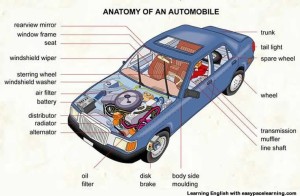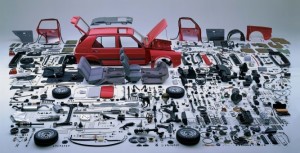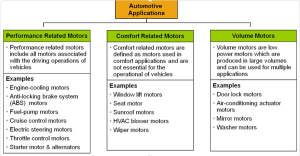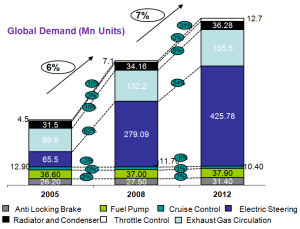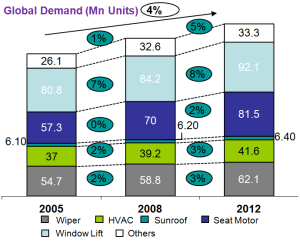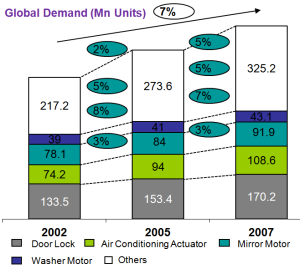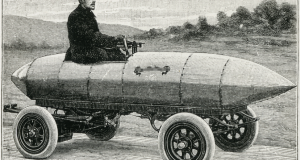AUTHOR: PRANSHU UPADHAYAY
This question is quite analogous to “How many bones are there in a human body?”. As a human body cannot function without bones, a car needs many electric motors to operate several functions for it to drive smoothly and perfectly. So there must be a reason cars have been traditionally called ‘Motor Cars’. Imagine cars being called ‘Engine Cars’ or ‘Generator Cars’. Well they are not. Not to mean that the engine or the alternator is the lesser important part of the car, but maybe because the way we know cars today, they are best called Motor Cars simply because of the numerous number of motors present along with an engine. From the seasonally important wiper blades, to the glamorous power windows, from the totally indispensable CD player to the totally dispensable sun roof, (or maybe not); from the fuel pump to the starter motor, the list is endless. Well, not exactly, it has an end! But it is very large. So let’s find out where, how many, and which types of motors run your Motor Car.
The fig. 1, aptly named, ‘anatomy’ of an automobile illustrates the major parts in conventional cars and fig. 2 shows an exploded view of a modern-age car with all its different components, right from small nuts and bolts to the engine and transmission systems. This gives us an idea about the complexity of the car and how the various parts and mechanism needs to interface with each other, so as to operate smoothly and effectively.
Fig.1 Anatomy of an automobile1
Fig. 2 Exploded view of a Car2
Coming back to the electric motors – there are a few hundred motors from very small power ratings of 5-10 W to as large as 15-20 kW varying for different applications and functionality in the car.
Motors, which form part of the electrical systems in a car, can be divided into three categories:
- Performance related motors
- Comfort related motors
- Volume motors
In the table3 below you can see the explanation for these three categories of motors and few examples for the same.
The motors listed as examples in these three major categories provide an idea about the functioning of these categories but the actual list of motors within these categories is quite exhaustive. With the increasing complexity and luxury vehicles introduced in the market, the number of these motors in cars is increasing progressively. See figures below.
Fig. 3 Performance related motors growth3 Fig. 4 Comfort related motors growth3
Fig. 5 Volume motors growth3
One can thus conclude that the motors in present day cars are increasing in number with the increasing demands of customers related to comfort and safety features in a car. In a nutshell, it is very difficult to designate a single number to the motors present in a modern day car. Nevertheless, it can be said with certainty that hundreds of small and large motors drive the modern day car. With purely electric vehicle like Tesla, BMW i3, Chevrolet Bolt EV, Nissan Leaf, Chevrolet Spark EV, Renault Zoe, and many others, gaining popularity it could very soon be a possibility that motors eliminate the existence of an engine in any automobile.
Source:
- https://www.easypacelearning.com/all-lessons/english-level-2/1299-car-parts-vocabulary-list-learn-the-english-words-for-car-parts-using-pictures
- http://kenrobertsautoglass.com/wp-content/uploads/2013/11/Shop-For-Classic-Car-Auto-Parts.jpg
- ATKEARNEY report

 European Training Network for the Design and Recycling of Rare-Earth Permanent Magnet Motors and Generators in Hybrid and Full Electric Vehicles (DEMETER)
European Training Network for the Design and Recycling of Rare-Earth Permanent Magnet Motors and Generators in Hybrid and Full Electric Vehicles (DEMETER)